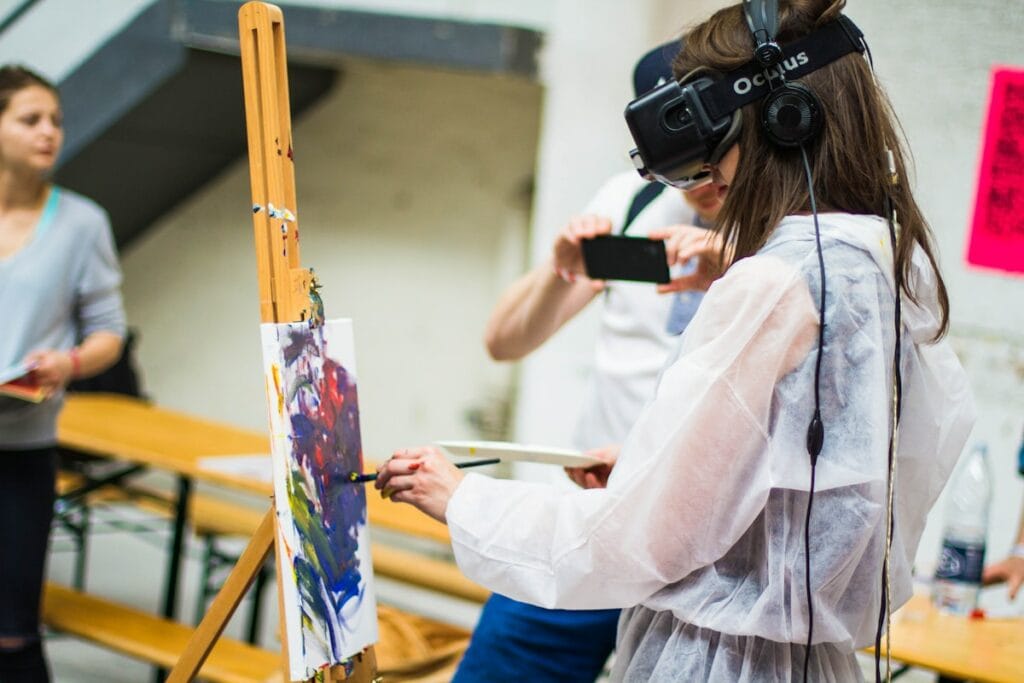7 Surprising Facts About Your Self-Image
Understanding self-image is essential for your confidence and mental health. There are facts that might surprise you! We curated 7 of the factors contributing a healthy self-image.

What are the forces working on your self-perception? Exploring the science behind self-image—and learning how to cultivate a healthier one—can help counteract the influence of social media and build resilience in the face of today’s image-driven culture. What are the facts influencing your self-image? What lens do you use to see yourself?
Key Takeaways
Self-Image Origins: The concept of self-image, first introduced by Morris Rosenberg in 1965, refers to how we hold about ourselves, the type of person we think we are, from our body image to gender identity. “Over 5,000 high-school students of different social, religious and national backgrounds were studied to show the effects of family experience, neighborhoods, minority groups, etc. on their self-image and response to society.”
Components of Self-Image: Self-image is shaped by how we see ourselves, how we believe others perceive us, and how we wish to be—our ideal self. These perceptions can involve our appearance, personality, skills, values, and our sense of fitting into societal norms, including ideas around masculinity and femininity.
Self-Image vs. Self-Concept: Although closely related, self-image and self-concept are distinct. Self-image focuses on concrete aspects of ourselves—traits we can observe or measure—while self-concept refers to a more abstract understanding of who we are.
Mental Health Implications: Various mental health issues are connected to self-image. For instance, body dysmorphic disorder involves an intense focus on perceived flaws in appearance, whether real or imagined, often leading to a damaged self-image and self-esteem.
Self-image is increasingly shaped by a complex blend of personal perceptions, social influences and a digital environment that is difficult to escape. Recent statistics reveal a concerning trend: over 60% of people feel inadequate about their appearance or abilities, with social media playing a major role.
Platforms like Instagram, TikTok, and Facebook are carefully curated spaces where users often present only their best moments, creating an illusion of perfection that can be damaging for others. Studies show that people who spend significant time on social media are more likely to experience low self-esteem, heightened anxiety, and body dissatisfaction.
In fact, research from the American Psychological Association has shown that daily social media users report up to a 30% increase in self-doubt and insecurities compared to those who limit their screen time. The pressure to meet the unattainable standards set by edited images and idealized lifestyles can lead to a distorted self-image, affecting mental health and overall well-being.
Self-image is increasingly shaped by a complex blend of personal perceptions, social influences and a digital environment that is difficult to escape. Recent statistics reveal a concerning trend: over 60% of people feel inadequate about their appearance or abilities, with social media playing a major role.
Platforms like Instagram, TikTok, and Facebook are carefully curated spaces where users often present only their best moments, creating an illusion of perfection that can be damaging for others. Studies show that people who spend significant time on social media are more likely to experience low self-esteem, heightened anxiety, and body dissatisfaction.
In fact, research from the American Psychological Association has shown that daily social media users report up to a 30% increase in self-doubt and insecurities compared to those who limit their screen time. The pressure to meet the unattainable standards set by edited images and idealized lifestyles can lead to a distorted self-image, affecting mental health and overall well-being.
Understanding the impact of these forces on self-perception is critical. Exploring the science behind self-image—and learning how to cultivate a healthier one—can help counteract the influence of social media and build resilience in the face of today’s image-driven culture.
Self-image refers to the mental picture we have of ourselves, encompassing how we perceive our physical appearance, personality traits, abilities, and overall worth. It is the internal narrative that influences our beliefs, attitudes and behaviours, ultimately shaping our interactions with the world and how we view our place within it. Self-image is a crucial aspect of our identity and can significantly impact mental health and emotional well-being.
Components of Self-Image
Physical Self-Image: This aspect relates to how we see our physical appearance, including body shape, facial features, and overall attractiveness. Our perceptions can be influenced by societal standards, media representations, and personal experiences.
Emotional Self-Image: This component involves our feelings about ourselves, including self-esteem and self-worth. It reflects how we value our emotions, cope with challenges, and perceive our ability to handle life’s demands.
Social Self-Image: This relates to how we view ourselves in social contexts. It encompasses our perceptions of how others see us, our social skills, and our ability to form and maintain relationships.
Competence Self-Image: This aspect pertains to how we perceive our abilities, skills, and intelligence. It can influence our confidence in tackling tasks, pursuing goals, and taking on new challenges.
Formation of Self-Image
Self-image is shaped by various factors, including:
Childhood Experiences: Early childhood interactions with immediate family, parents, caregivers, peers and teachers can significantly influence how we view ourselves. Positive reinforcement can foster a healthy self-image, while criticism or neglect can lead to negative perceptions.
Cultural and Societal Influences: Cultural norms, media portrayals and societal expectations can impact how we perceive ourselves. These influences often set standards for beauty, success, and behaviour that individuals may strive to meet or rebel against.
Personal Experiences: Life events, such as achievements, failures, and trauma, can alter our self-image. Successes can enhance self-esteem, while failures may lead to feelings of inadequacy.
Comparative Analysis: We often assess our self-image in comparison to others, whether through external validation, direct interactions or social media. This can lead to either positive reinforcement or feelings of inferiority.
A positive self-image is associated with numerous benefits, including:
Mental Health: Individuals with a healthy self-image tend to experience lower levels of anxiety and depression and are more resilient in the face of stress.
Motivation and Performance: A positive self-image can enhance motivation, leading to improved performance in various areas, including academics and career pursuits.
Relationships: Those with a positive self-image are often more confident in their social interactions, leading to healthier relationships and better communication skills.
A healthy self-image contributes to a sense of fulfillment and purpose in life, allowing individuals to pursue their goals and engage in activities that bring them joy.
Understanding self-image is essential for your confidence and mental health. When recognizing the factors that shape your self-perception and the implications it has on your life, you can work toward cultivating a more positive self-image. This process may involve self-reflection, challenging negative beliefs, and seeking support from mental health professionals when needed.
Building a positive self-image is a journey that can lead to greater confidence, resilience and happiness.
Do you want to share your story and inspire our readers ? Know that YOUR EXPERTISE is paving the way for a fairer, happier society.







